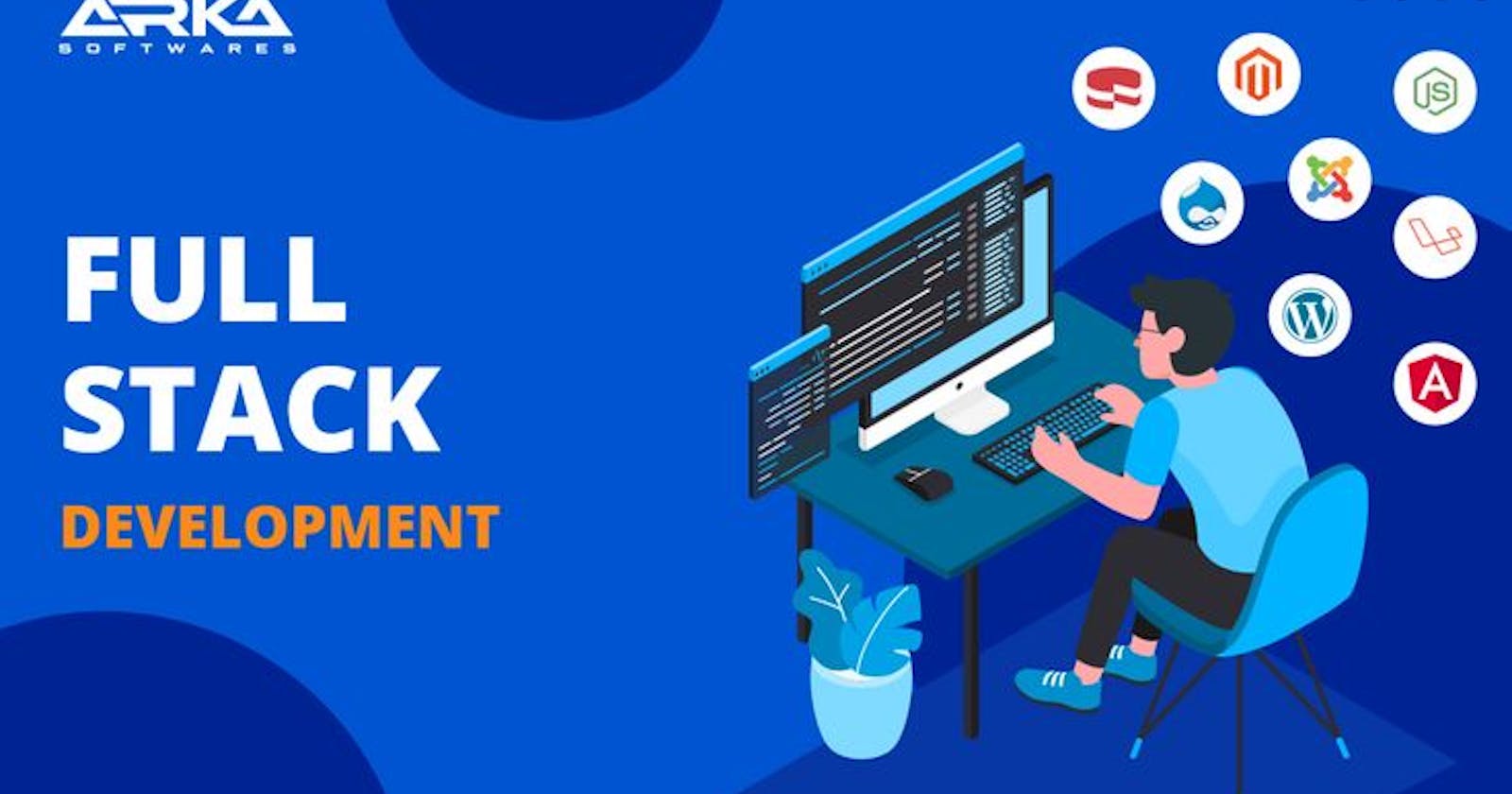The Complete Full Stack Developer's Handbook
Your Ultimate Guide to Full Stack Development: Mastering Every Layer
Becoming a full stack developer is akin to embarking on a journey through the expansive landscape of technology. From front-end design to back-end development, mastering the full stack unlocks myriad possibilities in the digital realm. Whether you're a novice or an experienced coder, this handbook will serve as your comprehensive guide to navigating the complexities of full stack development.
Understanding the Full Stack
Before delving into the specifics, let's grasp the concept of full stack development. Simply put, a full stack developer excels in both front-end and back-end technologies, along with essential skills like database management, version control, and deployment. They possess a holistic understanding of the entire web development process, enabling them to create dynamic and interactive web applications from inception to completion.
Essential Front-End Technologies
At the forefront of web development lies the front-end, where user interfaces come to life. To excel in this domain, one must have a strong grasp of HTML, CSS, and JavaScript. HTML provides the structure of web pages, CSS styles them, and JavaScript adds interactivity and functionality. Additionally, mastering popular front-end frameworks like React, Angular, or Vue.js will enhance your ability to craft responsive and dynamic user interfaces.
Mastering Back-End Development
While front-end development focuses on what users see and interact with, back-end development powers the behind-the-scenes functionality of web applications. Key languages and frameworks in this realm include Node.js, Python (with frameworks like Django or Flask), Ruby on Rails, and PHP. Understanding server-side scripting, databases (such as MySQL, MongoDB, or PostgreSQL), and APIs is crucial for constructing robust back-end systems.
Database Management
Data is the lifeblood of modern applications, and effective management of it is paramount. As a full stack developer, you'll encounter various types of databases, including relational (SQL) and non-relational (NoSQL) databases. Understanding concepts like data modeling, querying, and optimization will enable you to design efficient database schemas and seamlessly retrieve information.
Version Control with Git
Collaboration lies at the heart of software development, and version control systems like Git facilitate seamless teamwork. By mastering Git, you can track changes to your codebase, collaborate with other developers, and easily revert to previous versions if necessary. Familiarizing yourself with Git commands, branching strategies, and popular platforms like GitHub or GitLab will streamline your development workflow.
Deployment and DevOps Practices
Bringing your application from development to production requires a solid understanding of deployment processes and DevOps practices. Explore containerization technologies like Docker for creating lightweight, portable environments. Learn about continuous integration (CI) and continuous deployment (CD) pipelines to automate testing and deployment workflows. Embrace infrastructure as code (IaC) tools like Terraform or Ansible to efficiently provision and manage your infrastructure.
Staying Updated with Emerging Technologies
The tech industry is in a constant state of evolution, with new tools and technologies emerging at a rapid pace. As a full stack developer, it's essential to stay abreast of the latest trends and innovations. Keep yourself informed about advancements in areas like cloud computing, serverless architecture, microservices, and progressive web apps (PWAs). Continuous learning and experimentation will keep your skills sharp and ensure your relevance in the ever-changing landscape of technology.
Building a Strong Portfolio
In the competitive field of full stack development, a robust portfolio can set you apart from the crowd. Showcase your projects on platforms like GitHub or personal websites to demonstrate your skills and expertise. Include a variety of projects that highlight different aspects of your abilities, from front-end design to back-end functionality. Additionally, actively participate in open-source communities and contribute to projects to expand your network and visibility.
Embracing a Growth Mindset
Finally, remember that mastery in full stack development is a journey, not a destination. Embrace a growth mindset and approach challenges with curiosity and perseverance. Be open to feedback, learn from failures, and continually seek opportunities to expand your knowledge and skills. With dedication and determination, you'll embark on a fulfilling career as a full stack developer, shaping the digital world one line of code at a time.
In conclusion, the path to becoming a complete full stack developer through a Full Stack Development course in Lucknow, Indore, Gwalior, Delhi, Noida, and other cities in India is multifaceted, encompassing a diverse array of technologies, methodologies, and best practices. By mastering both front-end and back-end development, along with essential skills like database management and deployment, you'll possess the expertise to create sophisticated web applications from conception to execution. Stay curious, stay committed, and let your journey as a full stack developer unfold with passion and purpose.
